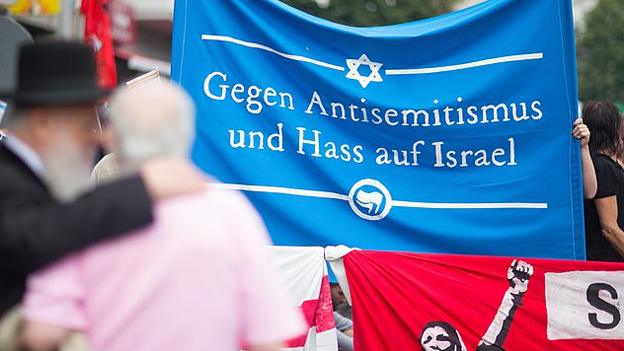Brussels Jewish museum reopens: 'An end to innocence'
- Published
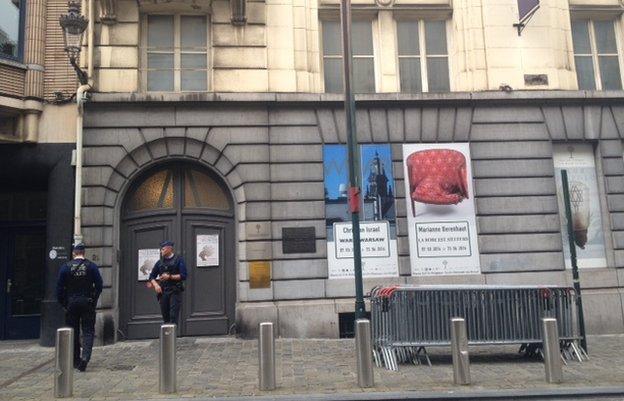
French-born Mehdi Nemmouche has been charged with the gun attack on the museum on 24 May
In a 19th Century town house in the fashionable Sablon area of Brussels, the Jewish Museum of Belgium is preparing to open its doors again to the public.
Four months ago, a gunman opened fire at the museum entrance, leaving four people dead - two museum workers and an Israeli couple.
It is hard to imagine those scenes now, on the quiet, cobbled street filled with art galleries and antique shops.
"We have lots of exhibitions planned for the future," says the museum's president, Philippe Blondin.
"Of course, it will be different now. We carry the burden and weight of this event and this wound will stay with us. It will not be destroyed with time. But we carry on."
The museum staff are determined it will be business as usual - or at least as close to usual as it can be.
"We are continuing our educational work," says Norbert Cige, the museum's general secretary. "Those who tried to silence us: well, that objective has failed.''
Despite this defiance, though, there is an unmistakeable nervousness. Security is tight. Police officers stand alert and visitors will have to pass through newly-installed metal detectors.
On the wall by the entrance hall a new, bronze plaque commemorates the four victims. The accompanying message, in Flemish, French and English, is powerful: "Victims of a cowardly murder by a terrorist in this place".
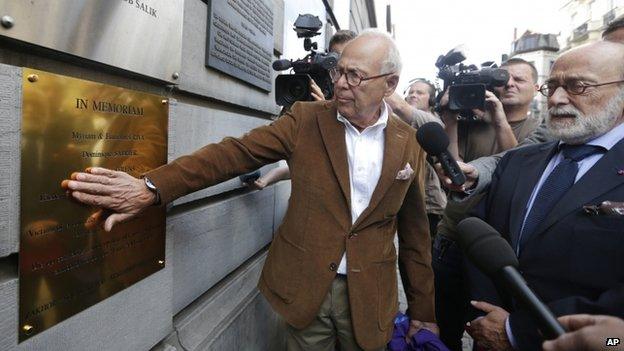
Museum President Philippe Blondin (L) and Secretary General Norbert Cige (R) unveil a plaque to the victims

Four victims of 24 May attack
Emmanuel Riva, 54, and Myriam Riva, 53, from Tel Aviv, Israel
Dominique Sabrier, 66, French volunteer at museum
Alexandre Strens, 25, worked at museum's reception

"There will always be a before and an after that day", said Chouna Lomponda, head of communications at the museum.
"We had a certain innocence about us before. It's not that we took things lightly, but we hadn't considered the risks, that we could be a possible target of this kind of attack."
In June, French-born Islamist Mehdi Nemmouche was arrested in Marseille. He has since been extradited to Belgium and is accused of carrying out the attack.
The case is being watched with interest across Europe.
Belgian prosecutors have claimed Nemmouche spent a year in Syria before returning to Belgium last spring.
A French journalist, previously held hostage in Syria, has alleged Nemmouche was one of his captors.
The Belgian investigating judge has agreed to the Jewish museum reopening on the understanding that nothing is changed at the scene of the shooting, as the court may want to perform a re-enactment of during any trial.
Back at the museum Philippe Blondin's team are working on a new exhibition based on the work of comic artist Marcel Gotlib.
"Sunday will be a symbolic day. Symbolic because we will see all the people who showed their sympathy and helped us, who showed solidarity. After four months of silence it is very much time to open to our public again."
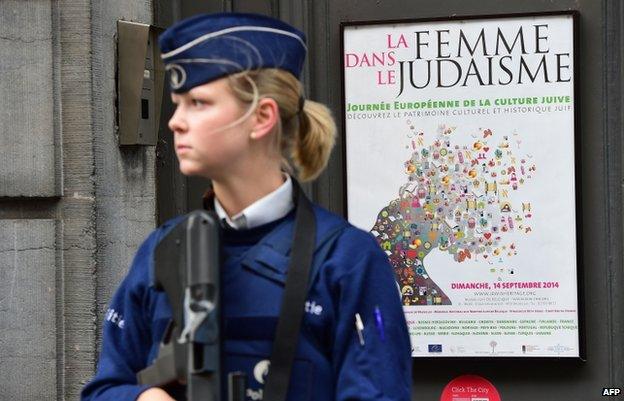
The museum will have a police guard when it reopens
- Published6 September 2014
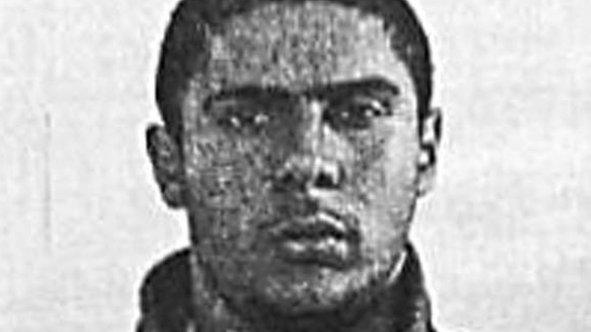
- Published24 May 2014
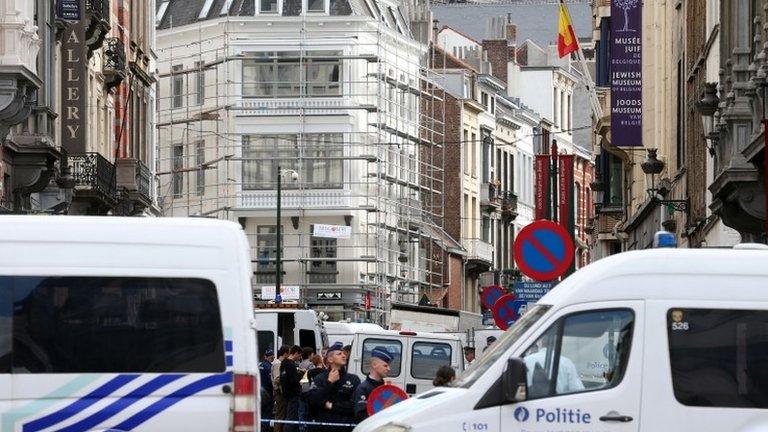
- Published21 August 2014
